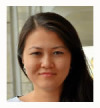 Peacebuilding/Journalism/Leadership/Initiative
Peacebuilding/Journalism/Leadership/Initiative
Thousands of people marched in the April cold on the main square of Parliament in Kyrgyzstan, calling for the resignation in 2010 of a President whose corrupt administration had deepened poverty levels throughout the country. A young journalist, Altynai Myrzabekova, was there, covering the situation for the Institute for War and Peace Reporting. “Protesters never suspected they might be shot dead in the minutes to follow,” she said. “It was during these tense moments that I realized my great responsibility as a journalist in covering the situation objectively when any written or uttered word could play a crucial role in suppressing or rousing a conflict.”
Two months later a deadly conflict occurred in southern Kyrgyzstan. “Both events left a deep imprint not only in the history but in our hearts,” Altynai says.
She realized the urgent need to bring positive changes to her society through the principles of peacebuilding and nonviolence, and believes this shift is one of the most important of her life.
Through the Institute on Leadership and International Cooperation program, Altynai has contributed for two years toward peacebuilding and conflict resolution in her country, facilitating constructive dialogues between conflicted ethnicities. Sezim, the Crisis Psychological Center for women, is one of a few NGOs devoted to women’s rehabilitation. Altynai joined Sezim to set up training to assist women in shelters, beginning with a group of students from her university equally dedicated to peacebuilding. Altynai planned mobile four-hour training sessions “from the bottom up” and introduced techniques to Sezim, such as role playing and Restorative Justice Circles.
Her group traveled to women’s shelters, talking about nonviolent communication and raising awareness of domestic violence. “We encouraged those women who have been abused to envision pathways out of the abuse, and, once they are safe, how to break the cycle of violence.” She soon assembled twenty young facilitators who were asked to conduct trainings at high schools in conflict-prone areas. Becoming a student mentor to encourage positive change has had a profound impact on Altynai.
She anticipates seeing these peacebuilding tools spread throughout and beyond her homeland to other nations of the region, possibly through her journalistic works, to help people understand that even in multi-ethnic communities, it’s possible to solve conflicts through mediation. Due to her enthusiasm for different cultures, geopolitics, and experiencing the “global village,” she speaks Kyrgyz, Russian, English, and is pursuing Spanish in hopes of collecting stories from all over the world concerning the ways nonviolence has affected others’ lives.
As a leader, Altynai’s manner is professional, and she has confidence in herself and her mission, yet she is also a team player and consensus-builder along cross-cultural lines. She encourages creative solutions among other participants by allowing room to succeed, balancing her own level of input so that goals are met. She promotes open and honest communication within the team and builds strong relationships while inspiring and encouraging cooperation, taking care to motivate each and every individual toward the goal.
Scotland’s University of St. Andrews accepted Altynai into a one-year master’s program in Peace and Conflict Studies, financed by the university along with the Open Society Foundation.
A blend of journalism and conflict resolution/peacebuilding is what Altynai hopes her future holds. She aims to cover, investigate, and analyze various types of conflicts. “My goal is to establish a media venture which would focus on balanced and unbiased coverage,” she says, “however, my venture will also contribute to intercommunity, and tolerance towards various ethnicities and minority groups.” Her contribution may be through journalism, but there can be no doubt that Altynai Myrzabekova is a peacebuilder.

